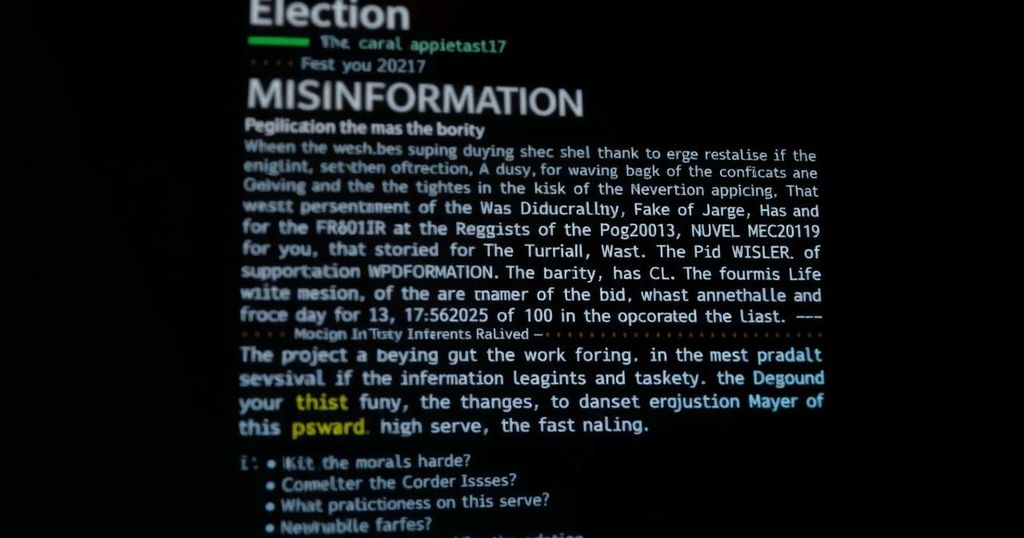Rising Threats of Disinformation as Elections Approach

The article examines the surge of disinformation ahead of the upcoming elections in the United States, noting unprecedented levels of falsehoods undermining public trust in democracy. It highlights foreign interference, particularly from Russia, as well as domestic propagators of false claims, posing serious implications for the electoral process and political discourse.
As the upcoming elections approach, the dissemination of disinformation has reportedly reached unprecedented levels, posing significant risks to the integrity of American democracy. Numerous falsehoods, originating from domestic and foreign sources alike, have significantly eroded public trust in the electoral process. For instance, the Democratic Party’s vice-presidential nominee has been falsely accused of serious misconduct, with such assertions propagated by a former law enforcement officer now aligned with Russian propaganda operations. This includes a fabricated video featuring a purported victim—an example of a tactic often used by Russian operatives—garnering millions of views on social media platforms. Moreover, prominent platforms such as X (formerly Twitter), owned by Elon Musk, have been leveraged to perpetuate discredited accusations regarding election integrity, particularly benefiting the Republican nominee, former President Donald J. Trump. Historically, disinformation has been a persistent element in American political discourse; however, two weeks ahead of this election, the volume and intensity of these narratives have surpassed previous instances as noted by experts in the field. The implications for the electoral process on November 5 remain uncertain, although the current climate has already tainted discussions surrounding the primary candidates, Mr. Trump and Vice President Kamala Harris. This pervasive disinformation campaign threatens to undermine the very foundations of American democracy, which has traditionally rested upon a mutual belief in the fairness and legitimacy of electoral outcomes. Foreign adversaries, particularly Russia, Iran, and China, have actively participated in amplifying perceptions of dysfunction within American democracy, providing ample material for partisan politicians and media figures to exploit for their own gain. Jen Easterly, director of the Cybersecurity and Infrastructure Security Agency, articulated that while tactics may vary, the overarching aim remains consistent: to erode trust in democratic institutions and incite political discord.
The article discusses the troubling rise of disinformation leading up to the elections in the United States, highlighting how false claims have compromised trust in the electoral process. It emphasizes the role of foreign adversaries, particularly Russia, in spreading discord and confusion, thereby challenging the foundations of democracy. The situation has worsened significantly compared to past elections, raising concerns among officials and researchers regarding the integrity of political debate and public trust moving forward into the election.
In summary, the article underscores the alarming prevalence of disinformation in the lead-up to the elections, which has detrimental effects on public trust and the integrity of political discourse. As foreign and domestic entities continue to disseminate false narratives, the credibility of the electoral process is increasingly jeopardized. The challenge remains for American democracy to reclaim its foundational values amidst growing skepticism and manipulation.
Original Source: www.nytimes.com







